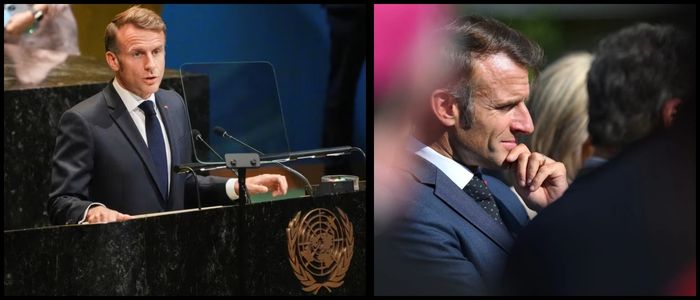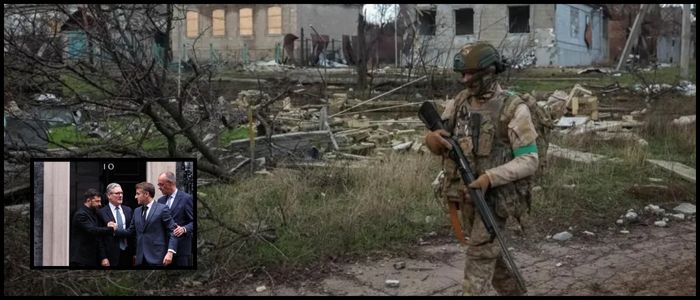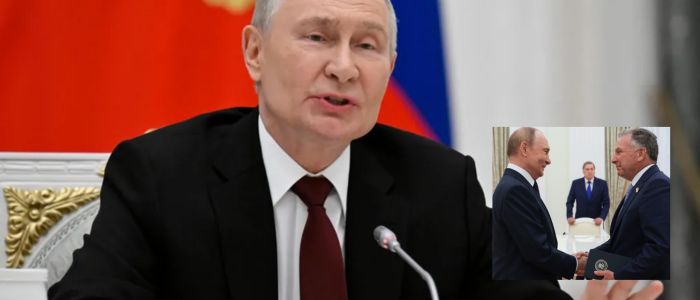Recognition took place at the summit by Monaco, Malta, and Luxembourg, while Belgium indicated it would recognize Palestine, contingent upon the removal of Hamas and the release of Israeli hostages in Gaza.
This recognition puts France at the head of a greater diplomatic campaign to legitimize - in the face of internal Israeli opposition - the idea of Palestinian statehood, which is already recognized by over 145 member nations of the UN.
Macron Pushing for Peaceful Co-habitation
Speaking to the general assembly, French President Emmanuel Macron stated that recognizing Palestine as a state would lead to a long-term solution to peace. It's “the only solution that will allow Israel to live in peace,” he said, adding that it should be viewed as a defeat for Hamas, not as a concession.
Macron reiterated that recognizing Palestinian rights does not impede Israeli rights, noting that France has recognized Israeli rights since the beginning. He urged world leaders to maintain the prospect of coexistence of the two states, side by side, in peace and security.
UN Secretary-General Antonio Guterres also addressed the summit, calling the situation in Gaza ''intolerable'' and stating that Palestinian statehood ''is a right, not a reward'' and that, ''without it, peace will be impossible.''
France's recognition came just after similar statements from the United Kingdom, Canada, Australia, and Portugal, adding to a growing international momentum towards Palestinian statehood. However, the absence of the United States from the summit illustrates that these announcements are meaningful more as symbolic gestures than practical exercises.
The United States is a permanent member of the Security Council with veto power and can still exert considerable influence over Palestinian efforts toward full UN membership.
Strong Israeli Backlash
Israel reacted furiously to the wave of announcements of official recognition. Prior to the summit, Israel's Ambassador to the UN, Danny Danon, lambasted the announcements and accused France and other countries of abandoning hostages who remain in the hands of Hamas. He stated that the US and Israel "will not participate in this charade," indicating a tougher attitude toward international calls for Palestinian statehood.
Israeli Prime Minister Benjamin Netanyahu also criticized the announcements, stressing a Palestinian state "could endanger Israel's existence and reward terrorism."He committed to promoting advocacy at the United Nations and other world platforms against what he termed "slanderous propaganda."
Israel's far-right national security minister, Itamar Ben Gvir, went further, calling for immediate action, such as implementing Israeli sovereignty in Judea and Samaria (the name Israel uses for the West Bank), and calling for the Palestinian Authority to be dismantled.
Diplomatic Rift and Obstacles Ahead
Recognizing Palestine marks a significant break from the United States, the only permanent member of the Security Council not to support full statehood for Palestine. Therefore, it is pushing the United States and Israel increasingly isolated as more countries support the two-state framework.
Palestinian efforts for full recognition at the UN have been underway since 2011, and Palestine is currently classified as a non- member observer state based on its 2012 status. For Palestine to obtain full recognition at the UN, nine of the 15 members of the Security Council must vote yes, with no member of the five permanent members of the Security Council, the U.S., France, China, Britain, or Russia vetoing. The U.S. has generally wielded its veto to intervene in these matters; the most recent vote came just last year.
The latest recognition is in response to global frustrations over the long-running conflict. But analysts noted that while easy recognitions occur, there is nothing proposed as actual economic, legal, and diplomatic coercion on Israel to come back to the negotiating table.
Washington appears, for the moment, satisfied that there will be no action for reconciling recognition beyond symbolic recognition.
Earlier this month, 142 UN member states ratified the New York Declaration, a set of steps toward a two-state solution that encouraged the formation of a Hamas-free Palestinian government. The Élysée Palace in France stated that the resolution gives a basis for steps moving toward the opening of peace talks.
With the approval of so many toward Palestine, many still are doubtful about a future state for the Palestinians, especially after more than two years of fighting in Gaza and continued Israeli settlement of the West Bank.
Recognition in the eyes of many seems to serve as a symbolic gesture of solidarity and a warning of sorts as the clock ticks on a two-state solution.
World

France and allies recognize Palestinian state at UN

On Monday, France and several Western allies formally recognized Palestine as a state, at the United Nations, representing an important shift in the international situation, as conflict in Gaza and settlement expansion in the occupied West Bank get worse. The announcement, which took place during a summit in New York co-chaired by France and Saudi Arabia, reflects an increased momentum for a two-state solution, despite clearly hostile opposition from Israel.















